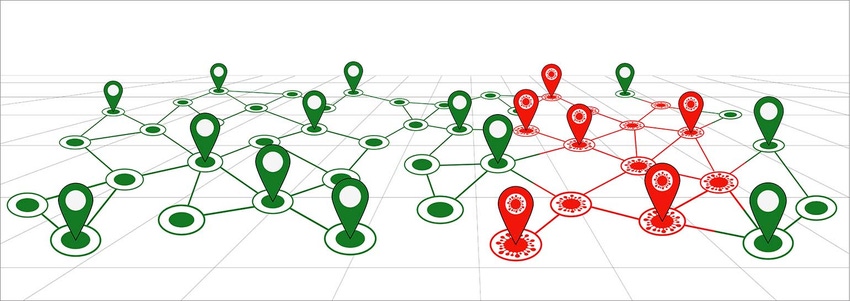What can the U.S. swine industry learn from the COVID-19 pandemic?
SHIC executive director examines lessons learned on epidemiology, outbreak response that can be applied to swine health.

As the world deals with the COVID-19 pandemic, the Swine Health Information Center continues to focus its efforts on protecting and enhancing the health of the U.S. swine herd through coordinated global disease monitoring, targeted research investments that minimize the impact of future disease threats and analysis of swine health data. However, while COVID-19 may be a human health issue, Paul Sundberg, SHIC executive director, points out the discussions about the last three to four months are providing the U.S. swine industry valuable lessons on epidemiology and outbreak response.
"I think the first lesson is that you have to be able to respond quickly. These are lessons that we need to apply to an outbreak for animal health or swine health," says Sundberg, who presented Thursday during the third session of the Iowa Swine Day webinar series. "Time is the enemy during an outbreak. You have got to be able to respond quickly. We can't wait for validation of diagnostics after an outbreak. If we're going to be responding quickly, we can't wait to try to learn lessons of management and control and biocontainment as well as biosecurity."
Sundberg says the COVID-19 pandemic has also taught the industry about the importance of test availability and the need to ensure there are adequate amounts and adequate quality of tests available prior to an outbreak. The diagnostic capabilities and the surge capacity within the diagnostic labs are also critical.
"Because we may have adequate tests and adequate quality, but if the diagnostic labs are overwhelmed with these tests and aren't able to get them turned around in time, then we still have to wait," Sundberg says.
Traceability and being able to do contact tracing both forwards and backwards in the face of an outbreak is crucial, Sundberg says, as that is one of the best ways to limit the scope of an outbreak.
"We've got to know how far it's gone, where it is, and in order to do that, we've got to have traceability of our pigs and we've got to be able to do that as an animal health issue," Sundberg says.
A surveillance and response plan has to be in place prior to any foreign animal disease outbreak as Sundberg points out there will not be enough time during an outbreak to figure how to respond and how to do surveillance testing.
"The USDA has said they're going to have a hold on movement for 72 hours. We have to have a plan for how that's released, what the data is that has to be collected for the analysis, for being able to say, 'OK, we know enough after 72 hours or for some period of time that we can go ahead and go forward,'" Sundberg says.
Another lesson Sundberg says the swine industry has taken from the COVID-19 issue, and the backup of pigs from supply chain disruptions, is it's easier said during an African swine fever exercise to say you are going to depopulate and dispose of a population than actually doing so.
"That was not an easy thing that happened in response to COVID-19 and the packing plant issues," Sundberg says. "We certainly learned a lesson there about the need for coordination, the need for resources and that gets into the National Veterinary Stockpile and the lack of resources there to assist the pork industry."
The National Veterinary Stockpile is a USDA effort to provide resources necessary to help during disease outbreaks and has assisted during avian influenza outbreaks in the poultry industry in the past, but has not been tested to do that for large animal outbreaks and it was found that it lacked adequate resources to help pork producers with depopulation and disposal efforts during COVID-19 disruptions, Sundberg says.
He says the industry also learned where there's depopulation and disposal going on, it is critical to ensure there is site security and that confidential information remains there.
Finally, Sundberg says an extremely important lesson learned from the COVID-19 pandemic for the U.S. swine industry is the need for mental health assistance.
"We're trained as pork producers and as veterinarians to take care of these animals, to help these animals, to make sure that they are alive and productive, but when we have to go through depopulation and disposal, that can be very disturbing," Sundberg says. "Mental health assistance is something that we learned in this COVID issue that we have to pay attention to, should we have an (FAD) outbreak."
About the Author(s)
You May Also Like





